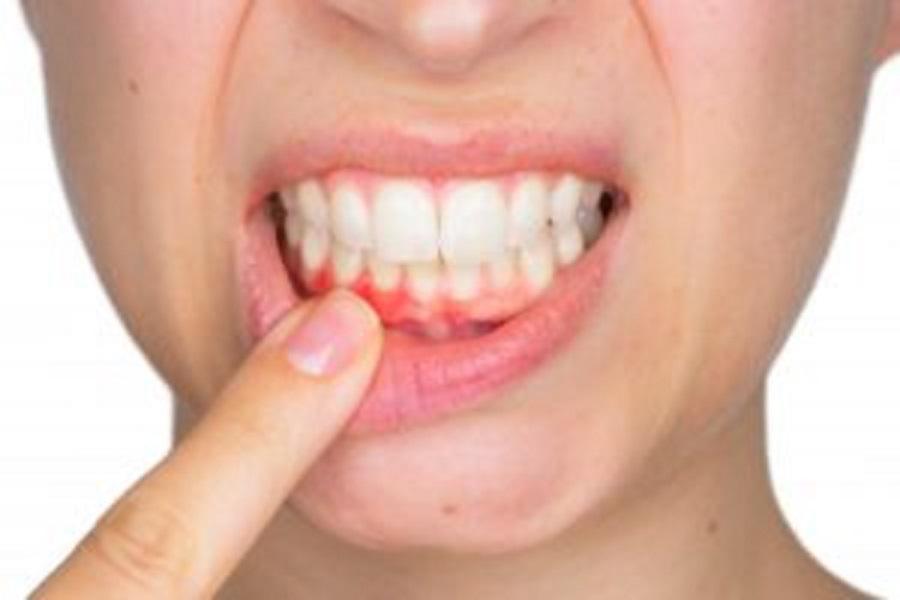
When to Be Concerned About Bleeding Gums

The causes of bleeding gums are often due to poor dental hygiene. It could happen as a result of inflammation, vitamin deficiencies, or even a new toothbrush. These are things you can normally remedy yourself at home. However, bleeding gums sometimes indicate something more serious.
With offices in Vass, Raeford, and Fayetteville, North Carolina, the specialists at Hometown Family Dental Centers offer essential dental care. A thorough checkup with one of our professionals can help diagnose and treat the underlying causes of bleeding gums.
Our oral hygiene experts provide screenings and routine dental cleanings, as well as cavity repair and cosmetic dentistry services. Before deciding on procedures such as veneers or teeth whitening, your gums should be healthy. Here’s what you need to know about bleeding gums and when to be concerned.
What’s causing my bleeding gums?
Healthy gums should be pale pink and firm, fitting snugly around each tooth. If your gums are bleeding, it might indicate a more serious problem. Here are some things that can cause bleeding gums.
Starting a flossing routine
It’s never too late to start flossing. You may notice some bleeding at your gumline when you first begin to floss, or even if it’s been awhile since you last flossed.
Additionally, if you start flossing more frequently than usual, your gums might bleed a bit. Don’t let this deter you from good oral hygiene habits. Flossing removes food debris and plaque, which is an essential component in dental care.
Gingivitis
If you don’t regularly remove the plaque that builds up on your teeth every day, it eventually causes inflammation called gingivitis. Your gums may feel sore and look swollen. You may see gums receding or notice a gap between the tooth and your gums, along with bleeding.
Chronic periodontitis
Periodontitis, also known as gum disease, causes bleeding gums. Gum disease is a severe infection of your gums that damages tender gum tissue and even destroys bones that support your teeth. Gum disease can even lead to tooth loss. Periodontitis occurs when gingivitis is left untreated, but the good news is that it’s avoidable and treatable.
Hormonal changes
According to the American Pregnancy Association, some pregnant women experience bleeding gums (pregnancy gingivitis) when brushing their teeth because of hormonal changes in the body.
A new toothbrush
If you’ve recently purchased a new toothbrush, the bristles may be too stiff. Hard, stiff bristles can damage gum tissue and make gums bleed. Always choose a soft-bristled toothbrush and brush gently to avoid damage to your gums.
Nutrient deficiency
If your diet is low in vitamin K or vitamin C, you might have a nutrient deficiency causing bleeding gums. Foods high in vitamin C include strawberries, tomatoes, potatoes, and citrus fruits. Foods high in vitamin K are leafy greens like kale, watercress, and spinach.
There are many other reasons your gums may be bleeding, such as:
- Diabetes
- Leukemia
- Herpes virus
- Epstein-Barr virus
- HIV
- Fungal infections
- Blood clotting disorders (hemophilia)
Addressing bleeding gums at home
If bacteria that results in plaque is causing your gums to bleed, there are things you can do to reverse and prevent worsening the problem.
- Brushing properly
- Flossing regularly (even if your gums bleed at first)
- Quitting smoking
- Eating less sugar
You also can commit to seeing your dentist regularly for a professional cleaning.
When should I be concerned about bleeding gums?
Bleeding gums are always a sign that something is wrong. Your gums are generally robust so they’re not injured when you chew hard foods. If your gums bleed occasionally, you can usually heal yourself with thorough being mindful of what you put in your mouth and keeping good oral hygiene habits.
You should see a professional right away if your gums bleed for a long time or if they’re very sore. If you see a yellow film on your gums, or if they’re severely red and swollen, call our office right away.
If you’re concerned about bleeding gums, or if it’s time for a dental checkup, call the office that’s convenient for you. You can also use this secure online form to request an appointment.
You Might Also Enjoy...


What Is the Difference Between Crowns and Bridges?

Why You Shouldn't Skip Your Professional Dental Cleanings

Are Dental Implants Permanent?

Help! I’m Really Anxious About My Upcoming Dental Appointment


